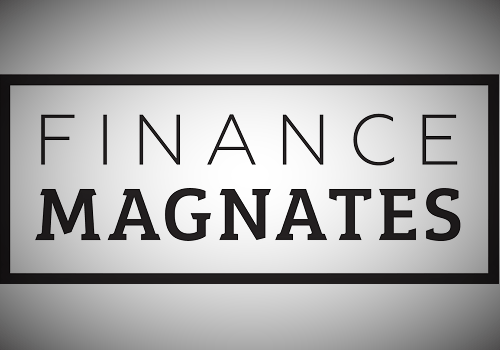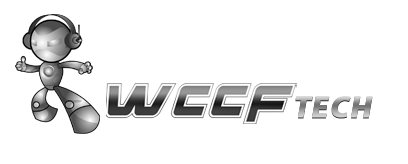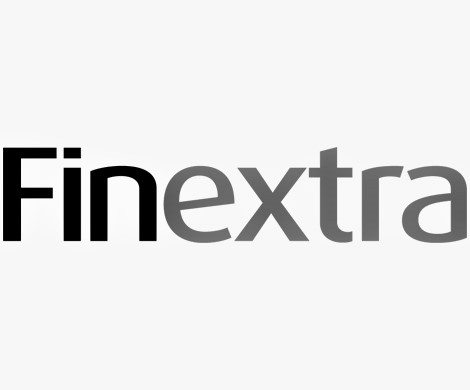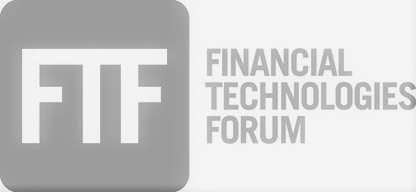
by c9tec | Apr 15, 2016 | Press Coverage
Fintech voice broker technology provider leverages cloud-hosted solution
By Steven Hatzakis
Original Article on Finance Magnates
Earlier this week Cloud9 announced a series A funding round from a consortium of financial institutions including J.P. Morgan, ICAP, and Barclays, to help it expand its cloud-based voice trading communication solutions globally and broaden into other asset classes beyond energy.
Finance Magnates had a chance to speak with the company’s CEO. He explained that the financial terms of the deal had not yet been disclosed, but according to people familiar with the matter the investors may release the data as a number of investors were waiting to fill in on the round.
CEO Comments
Talking with Cloud9 CEO Jerry Starr in a conference call shortly after the news, to learn more about what attracted the series A round, we talked about future prospects for Cloud9 itself as an emerging company.
In terms of the outlook ahead, he added: “We’ve actually been putting the investment to work since before we announced it publicly and have been steadily transforming the trader voice landscape at hundreds of institutions using our proprietary WebRTC-based technology. Now, as we look ahead, we’re excited to work closely with our backers to develop our application, which we ultimately see as more than just trader voice. Regarding the funding, Mr. Starr said: “The investment will be used to help grow the company and meet demand here in the USA and globally as more and more institutions begin to embrace modern alternatives to their voice communications needs.”
Cloud-Based Turrets
One of the main appeals of Cloud9’s solution is that instead of going the traditional landline based route which requires physical equipment and hardware (turrets), the company instead uses a completely cloud-based solution. This also helps avoid of the costs that would be tied to the disaster recovery-related expenses and other rental space-related costs that would be tied to hardware in a physical location.
It is similar to a voice over internet protocol (VOIP) approach where calls are all done via the internet and encrypted throughout the process, including in real-time during transit, when stored within Amazon, which is who the company is using for their robust cloud solution. The encryption feature was critical since the information is online, and Mr. Starr explained that some firms want to make sure they are the only ones that can decrypt the communications held in the stored files.
While the use of VOIP and related solutions doesn’t appear to be anything new, the manner in which Cloud9 has apparently packaged up its offering makes it lean and cost-effective for firms that might otherwise have legacy systems or complex processes in place for their voice-related systems.
There are a number of firms competing in this space, including Greenkey, Redbox, and BT Radiance, for example.
Beyond Energy
The company works with many energy brokers where the use of voice broking solutions is needed, and plans to expand into other asset classes to cater to stocks, foreign exchange, and fixed income.
The interest from the tier one banks appears to be the ability for the solution to be rolled out to their institutional clients. Considering that the company was just started in January 2014, and deployed its products a few months later, it’s still a fairly new company with clients trading for just over a year and a half.
However, the firm doesn’t lack experience for a new company as many of the members were formerly with IPC – including Mr. Starr – before he started Cloud9 to compete in this space. It already serves more than 2,000 traders at 350 firms in 21 countries.
Landline to Online
Commenting in the press release from earlier in the week regarding the investment, Sean Charlton, Head of Voice at Barclays, said: “Soft turrets are clearly the direction of travel for the industry and their security capabilities and compliance functionality are continually improving. We look forward to seeing Cloud9 roll out across the market.”
“Cloud9’s technology is a very important advancement for the industry,” said Rick Smith, Head of Private Investments at J.P. Morgan Chase & Co. Inc., commenting in the press release about the round. Mr. Smith added: “It allows us to rethink our communication strategy for traders, and with it the economics of communication.”
See Original Article on Finance Magnates

by c9tec | Apr 13, 2016 | Press Coverage
Original Article from FierceFinanceIT
JPMorgan, ICAP, and Barclays are lead investors in a recently closed initial investment round in Cloud9 Technologies, a company that provides a cloud‐based alternative to the turret telecommunications tools traditionally used by traders. Following our recent announcement of funding by J.P. Morgan, Barclays, and ICAP, Cloud9 was profiled by the Wall Street Journal, Along with their investments, the three firms are scoping and beginning trials of the technology for use on their own trading desks.
Financial details of the investment were not disclosed, but in addition to funding and testing the technology the three firms are also working with Cloud9 to further develop the product. The firms are collaborating with Cloud9 to identify additional features that would meet the needs of all traders across all asset classes, according to an email exchange with Cloud9.
In addition, while Cloud9 emphasized security and reliability in developing its product, the three financial firms are working with the company to ensure that the technology’s security, compliance and reliability meet their strictest standards.
ICAP is already using Cloud9 with its energy teams and JPMorgan is working toward implementation this year. Barclays is reviewing opportunities where Cloud9 can help the firm address cost and technological challenges.
Built on WebRTC and supported by the Amazon Cloud infrastructure, Cloud9 launched in the third quarter of 2014 with a secure communications application that offers the features of trading turrets, but can be accessed by traders logging into their computers. Cloud9 currently serves more than 2,000 traders at 350 firms in 21 countries.
Using the Cloud9 application, traders can communicate using microphones and speakers that plug into their computers. The model is a drastic departure from the traditional traders voice communications infrastructure used by finance firms, and it can dramatically lower voice communication costs, according to Greg Kenepp, president of Cloud9, who spoke about the technology with FierceFinanceIT last month. Kenepp says that trader voice services are the third largest expense line item on the trading floor, behind salaries and market data.
The cost differential is a large driver for financial firms. “It allows us to rethink our communications strategy for traders, and with it the economics of communication,” said Rick Smith, head of private investments at JPMorgan Chase & Co.
Cloud9 founders have deep experience in the turret industry, and several of the company’s executives, including Kenepp, CEO Jerry Starr, chief technology officer Leo Papadopoulos and COO Stephen Kammerer all held roles at turret and global communications provider IPC. In developing a web‐based alternative for trader telecommunications, Kenepp says the company focused on delivering features that are popular from existing telecommunications solutions along with advantages of modern technology. The Cloud9 solution includes features such as a global directory for finding counterparties, chat messaging and dynamic scalability.
The three firms that led the recent initial funding round for the company said they see cloud‐based voice communications as part of the eventual direction of the industry.
“Working with our co‐investors JPMorgan and Barclays, we are investing in Cloud9 to help drive this long overdue evolution,” said Steve Gibson, CEO of Euclid Opportunities, ICAP. “In line with our philosophy to support early‐stage firms that have the potential to transform legacy infrastructure, we believe Cloud9 will be at the forefront of market movement to adopt this compelling technology.”
Sean Charlton, head of voice at Barclays, added: “Soft turrets are clearly the direction of travel for the industry, and their security capabilities and compliance functionality are continually improving.”
Original Article from FierceFinanceIT

by c9tec | Apr 12, 2016 | Press Coverage
JPMorgan And Its 8,000 Traders Will Be Able To Work Anywhere If The Deal Goes Through
By Omar Sohail
Original Article on WCCF Tech
Transmitting trades was being carried out by JPMorgan through phone lines, but it looks like the largest US bank (in terms of assets) is looking to switch its medium to facilitate even better trading through cloud computing.
According to the Wall Street Journal, world-wide trading systems of JPMorgan could move to an Internet-based ‘cloud’ computing service that is maintained by the startup Cloud9 Technologies. According to Rick Smith, head of private investments stationed JPMorgan has stated that the bank lent money to Cloud9 Technologies, but has not disclosed as to what end the transaction might serve. However, with the latest revelation, it appears that the bank and the cloud service might finally be able to a reach an agreement.
If the deal does go through, then the company’s 8,000 traders would be able to work from absolutely anywhere on the planet and trade from anywhere. Gerald Starr, the Chief Executive of Cloud9, has stated that the purposes of cloud computing was to allow individuals to carry out tasks from their mobile devices effortlessly.
For the longest time, Wall Street and all the financial services spread around its proximity have relied on telephone lines connected to workstations to transfer trading data as well as record phone conversations. Most banking services have contemplated switching over to cloud computing services to carry out their operations, since it will deliver flexibility and convenience to both clients and employees and will deliver a favorable financial approach for the overall costs of the bank, since owning their own data centers is not exactly the best of investments.
One of the biggest concerns looming over these banks was the security of the business and JPMorgan has not signed a contract as yet. Even if they do, the changes will come slowly and will take years to implement.
In addition to the perks mentioned above, Cloud9 Technologies will be able to slash the costs incurred by banks, and will also nullify the requirement for companies to have their own disaster recovery scenario, which a small case scenario would be a power outage.
According to Rick Smith, implementing such a service will also result in higher voice quality and data security than the bank’s current internal system. New York-based Cloud9, which relies on Amazon.com Inc.’s cloud-computing service, has attracted investments garnering millions from the likes of JPMorgan, ICAP and Barclays. According to Cloud9 executives, the new technology has seen a spike in 2,000 traders across 350 firms stationed in 21 countries.
Coming back to the subject of cost-cutting, the latest financial metric according to WSJ states that out of approximately 200,000 traders, Cloud9’s software will potentially be able to save up to a billion dollars in costs, which should provide the ideal motivation for JPMorgan, which has been aggressively converged over cost-cutting for the past two years.
Read the Full Article on WCCF Tech

by c9tec | Apr 12, 2016 | Press Coverage
Cloud9 Technologies LLC, a cloud-based voice trading communication provider for financial firms and institutional traders, announced today the closing of an initial investment round with J.P. Morgan, ICAP, and Barclays.
Original Article on Finextra
Cloud9 replaces traditional telephone-based trading hardware (turrets) to deliver secure, compliant, real-time voice communications for the trading community while adhering to stringent compliance and security standards required by financial professionals.
Built on WebRTC and supported by Amazon Cloud Infrastructure, Cloud9 has quickly become the most widely used cloud-based voice trading platform due to its reliability, resiliency, and ability to streamline trading technology and hardware overhead. Cloud9 believes that with increased adoption by the industry, it could save banks up to $1 billion in annual costs related to telecom equipment and services.
“Communications and collaboration products are undergoing a transformation with the introduction of cloud services and new technologies such as WebRTC,” said Jerry Starr, CEO and co-founder of Cloud9 Technologies. “We’re thrilled to be able to offer traders a modern voice communications alternative, and are excited to be a part of the rapidly changing technology landscape.”
Since launching in 2014, Cloud9 has steadily grown and currently serves more than 2,000 traders at 350 firms in 21 countries, an indication that financial institutions are ready to embrace the next generation of communications technology. This investment by J.P. Morgan, ICAP, and Barclays represents the confidence that these organizations have in Cloud9 to make significant changes within the sector and will enable the company to grow its business to meet industry demand.
“Cloud9’s technology is a very important advancement for the industry,” said Rick Smith, Head of Private Investments at J.P. Morgan Chase & Co. Inc. “It allows us to rethink our communication strategy for traders, and with it the economics of communication.”
Having seen the positive effects of Cloud9’s technology on their traders’ workflow as well as their own balance sheets, some of Cloud9’s investors are also its customers.
ICAP is already using Cloud9 within its energy teams, while J.P. Morgan is working toward implementing the Cloud9 solution this year. Barclays also plans to work with Cloud9 in its development of the product for Barclays and to review opportunities where Cloud9 can help Barclays address expense and technological challenges related to voice trading.
“Working with our co-investors J.P. Morgan and Barclays, we are investing in Cloud9 to help drive this long overdue evolution,” said Steve Gibson, CEO, Euclid Opportunities, ICAP. “In line with our philosophy to support early-stage firms that have the potential to transform legacy infrastructure, we believe Cloud9 will be at the forefront of a market movement to adopt this compelling technology.”
“Soft turrets are clearly the direction of travel for the industry and their security capabilities and compliance functionality are continually improving,” said Sean Charlton, Head of Voice at Barclays. “We look forward to seeing Cloud9 roll out across the market.”
Wachtell, Lipton, Rosen & Katz served as legal advisor to Cloud9 in connection with the investment. Fenwick & West LLP served as legal advisor to the consortium of J.P. Morgan, ICAP, and Barclays.
Original Article on Finextra

by c9tec | Apr 12, 2016 | Press Coverage
Bank in talks to move trading systems to Internet-based service maintained by Cloud9 Technologies
After decades of transmitting trades by phone line, J.P. Morgan Chase & Co. is in discussions to move its world-wide trading systems to an Internet-base service maintained by startup Cloud9 Technologies LLC
By Sarah Krouse and Emily Glazer
Original Article on the Wall Street Journal
After decades of transmitting trades by phone line, J.P. Morgan Chase & Co. is close to cutting the cord.
The largest U.S. bank by assets said it is in discussions to move its world-wide trading systems to an Internet-based “cloud” computing service maintained by startup Cloud9 Technologies LLC. The New York bank lent money to Cloud9 last year, said Rick Smith, head of private investments at J.P. Morgan.
The company’s 8,000 traders for the first time could work from anywhere if the deal is completed. Cloud-based trading can happen on laptops and tablets.
“We’ve had people trading in the Hamptons, from airplanes, from a speedboat,” said Gerald Starr, chief executive of Cloud9, who worked previously for several trading technology firms.
Wall Street for decades has relied on telephone lines connected to workstations to transfer trading data and record phone conversations. But some of the biggest U.S. banks have been considering shifting some services to the cloud, where they can rent computing power from companies that maintain large clusters of servers rather than running their own data centers. The moves have been slowed by concerns about the security of the business.
J.P. Morgan hasn’t signed a contract yet, and any changes would take years to implement. It is considering the technology because it has the potential to cut costs, allow flexibility for traders and eliminate the need for a separate facility in a disaster recovery scenario, Mr. Smith said. It also has higher voice quality and data security than the bank’s current internal system, he added.
“We view it as an opportunity to save money for the firm and to have a better voice communications system across the trading marketplace,” Mr. Smith said.
New York-based Cloud9, which relies on Amazon.com Inc.’s cloud-computing service, has attracted investments of “tens of millions” from J.P. Morgan, ICAP PLC and Barclays PLC in a new funding round, the company said.
J.P. Morgan and ICAP also lent the firm a smaller amount in August 2015, Mr. Smith said. That debt is converting to equity and the two firms, along with Barclays, are adding additional investments, he added.
J.P. Morgan was among a number of brokerage and commodities advisers that agreed to use the new technology in recent months, and the system is now used by 2,000 traders across 350 firms in 21 countries, according to Cloud9 executives.
Out of roughly 200,000 traders at financial firms globally, Cloud9’s software has the potential to save around $1 billion in costs, the startup said. It is unclear how much this could save J.P. Morgan, which has heightened its focus on cost-cutting over the last two years.
Original Article on the Wall Street Journal

by c9tec | Mar 3, 2016 | Press Coverage
In a Q&A, Greg Kenepp, President of Cloud9 Technologies, details a key requirement of the forthcoming regulation of the European Union.
by Eugene Grygo
(Editor’s Note: One of the more underreported aspects of the Markets in Financial Instruments Directive/Regulation (MiFID II) is the voice recording requirements. Greg Kenepp, president of Cloud9 Technologies, a cloud communications service provider, has been focused on these forthcoming requirements, which are likely to turn out to be more challenging than most operations professionals think. FTF News recently got time with Kenepp to review the matter.)
Original Article from Financial Technologies Forum
Q: How many firms should be worried about the MiFID II recording guidelines? Is it more than a niche concern?
A: This is an issue that should be front-of-mind for all E.U.-based firms, even in the wake of the regulators pushing back the MiFID II implementation date to January 2018.
Financial institutions should be aware that the directive states that if there is an intention to execute a trade, the entire dialogue and/or discussion must be recorded. This will impact nearly all firms in Europe and they should not be complacent, ensuring their technology and procedures support compliance.
Q: How should firms proceed if they have a lot of physical infrastructure already in place? Should they start ripping out turrets and systems and move everything to a remote, digital environment?
A: The implementation process for modern trader voice systems is far less painful than implementing a traditional telecom-based solution, which can take several weeks.
Q: What are the storage demands for the retention of the recordings – it would seem to be rather high?
A: Storage for voice messaging systems varies by solution. Cloud9 stores all recording with several layers of encryption on AWS, and provides a much more secure environment than traditional trader voice solutions.
Q: How harmonized are the U.S. regulatory requirements for voice trading retention and reporting with the MiFID II rules?
A: While MiFID II regulates only the 28 E.U. member states (plus Norway, Liechtenstein and Iceland), there is no regulatory harmonization in place at this time with the U.S.
However, there are compliance recording regulations in place in the U.S. under the Dodd-Frank Act that govern when and what messages must be recorded.
Q: What are the searching and retrieval demands for these retained conversations?
A: Current MiFID II rules require that 180 days of call and communications data to be retained by financial institutions.
Most regulated firms already go beyond this and retain five or seven years of records for best practice or to comply with additional regulatory guidance.
MiFID II will eventually specify that firms must meet a mandatory requirement of five years of date recordings.
Cloud9 gives firms the ability to define their own retention periods, and to download their own recordings.
Q: What is an optimal strategy for a firm that has a mix of voice and digital communication that it will have to retain, review and report upon?
A: This is the case for most firms in today’s market structure. Institutional traders want to have the option of voice and digital communication, so service providers must have solutions that reflect these demands while meeting regulatory recording standards.
One of the issues with turret-based phone systems in the past has been the inability to completely record all calls and messages, and the inability to identify individuals on calls leaving institutions in a precarious position when trying to reconstruct conversations with regulators.






